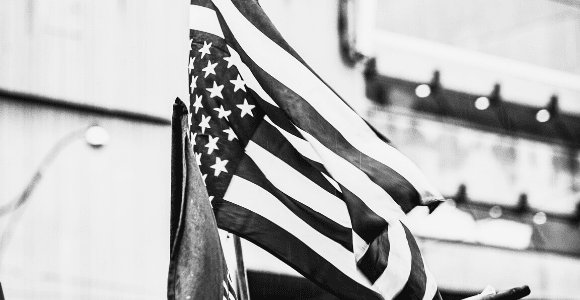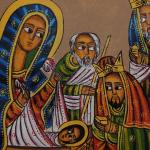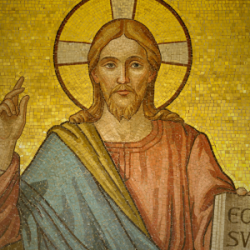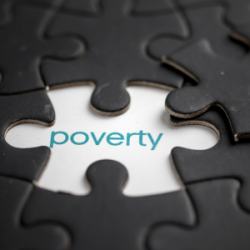Welcome readers! Please subscribe through the buttons on the right if you enjoy this post.

We read a similar saying in both Matthew’s and Luke’s gospels:
“He answered them, ‘When it is evening, you say, “It will be fair weather, for the sky is red.” And in the morning, “It will be stormy today, for the sky is red and threatening.” You know how to interpret the appearance of the sky, but you cannot interpret the signs of the times.’” (Matthew 16:2-3)
“He also said to the crowds, ‘When you see a cloud rising in the west, you immediately say, “It is going to rain”; and so it happens. And when you see the south wind blowing, you say, “There will be scorching heat”; and it happens. You hypocrites! You know how to interpret the appearance of earth and sky, but why do you not know how to interpret the present time?’” (Luke 12:54-56)
The context of our saying this week is the economic and political stress in Galilee and Judea in the early first century. The poor were being exploited. Movements that used nationalistic sentiments resented the rule of the Roman empire. As in most cases throughout history, those who have less to lose are the ones who are willing to take the greatest risks. These nationalistic movements would have easily manipulated the exploited poor, and its members would have resonated most deeply with a “Make Jerusalem Great Again” kind of message. What were the results?
Three decades later the poor rose up and Jerusalem was forever changed. The first thing the poor revolt accomplished was forcing the political and economic elites from the Temple. They burned the debt ledgers, erasing all debts, forcing a “Jubilee” of canceled debts. They then took up arms to engage in a liberation movement to free themselves from Roman taxation and rule. This Jewish-Roman war lasted from 66-69 C.E. Then, in the following year, the tense situation between the Jewish people and Rome escalated again, ending in a backlash from Rome that wiped out Jerusalem for everyone, rich, poor, elite, and the socially marginalized alike. The liberation methods chosen by the excluded and pushed down would profoundly backfire for everyone.
Roughly thirty years earlier, an itinerant, Jewish prophet of the poor endeavored to cast a societal vision of an alternative path. It was a leap for both ends of the socio-economic-political spectrum. He called the wealthy elites to see our interconnectedness with others and he called us to liquidate our vast possessions and redistribute their wealth to “the poor.” This was not a call to an isolated individual as some believe. Rather, this was Jesus’ message to his audience at large in Luke 12:
“Sell your possessions and give to the poor. Provide purses for yourselves that will not wear out, a treasure in heaven that will never fail, where no thief comes near and no moth destroys.” (Luke 12:33)
In the later book of Acts, the first act by all wealthy Jesus followers, to one degree or another, was to share:
“With many other words he warned them; and he pleaded with them, ‘Save yourselves from this corrupt generation.’ Those who accepted his message were baptized, and about three thousand were added to their number that day. They devoted themselves to the apostles’ teaching and to fellowship, to the breaking of bread and to prayer. Everyone was filled with awe at the many wonders and signs performed by the apostles. All the believers were together and had everything in common. They sold property and possessions to give to anyone who had need.” (Acts 2:40-45, emphasis added.)
In the book of Acts, this was an indispensable act in what it meant to follow Jesus. This would help us make sense of why Jesus was unpopular with the majority of the economic elites of his day.
And if you think that’s a naive hope, Jesus’ message to the desperate poor was equally a long shot. It was one of resistance, but of nonviolent resistance. A call to see our interconnectedness with one another. A call to liberation, and justice, yes. Yet this resistance was to be expressed through self-affirming, injustice confronting, militant nonviolence. He called the exploited down a path that would, yes, remove the power to hurt others from those in control of the present society, but would not remove those ones from humanity itself. It was a call for them to also “love” their enemies. This was a tension expressed well by the words of Barbara Demming in Revolution and Equilibrium:
“With one hand we say to one who is angry, or to an oppressor, or to an unjust system, ‘Stop what you are doing. I refuse to honor the role you are choosing to play. I refuse to obey you. I refuse to cooperate with your demands. I refuse to build the walls and the bombs. I refuse to pay for the guns. With this hand I will even interfere with the wrong you are doing. I want to disrupt the easy pattern of your life.’ But then the advocate of nonviolence raises the other hand. It is raised out-stretched—maybe with love and sympathy, maybe not—but always outstretched. With this hand we say, ‘I won’t let go of you or cast you out of the human race. I have faith that you can make a better choice than you are making now, and I’ll be here when you are ready. Like it or not, we are part of one another.’ Active nonviolence is a process that holds these two realities—of noncooperation with violence but open to the humanity of the violator—in tension. It is like saying to our opponent: On the one hand (symbolized by a hand firmly stretched out and signaling, ‘Stop!’) ‘I will not cooperate with your violence or injustice; I will resist it with every fiber of my being’. And, on the other hand (symbolized by the hand with its palm turned open and stretched toward the other), ‘I am open to you as a human being.’” (p. 16)
Even if those on the undersides and edges of society embraced nonviolent resistance, Jesus called them to learn to see the humanity of their oppressors, to seek distributive justice rather than revenge. Answering the call to not cast out oppressors from the human race but to leave open the possibility for oppresses to choose to listen, change, and embrace changing along with the changes in the larger society is difficult. Nonetheless, enemy love was also a part of Jesus’ message. To enemies, Jesus said, “Stop being enemies” To the exploited, Jesus said, “Leave open the possibility that exploiters may also change.”
Both sides met Jesus’ vision for a society with a level of resistance, depending on their social location.
Today, our society’s economic exploitation and classism are compounded by the interlocking network of the societal sins of racism, sexism, heterosexism, with nationalism and militarism thrown into the mix. Today’s struggle for a society characterized by distributive justice is complex.
But solving the economic exploitation of the poor won’t necessarily reverse our other societal sins. Examples are economic solutions in the past that intentionally left out people of color. A short NPR interview illustrates this well: Historian Says Don’t ‘Sanitize’ How Our Government Created Ghettos.
Nevertheless, some movements today address economic disparities between the 1% and the rest of society and acknowledge race. We can work together toward distributive justice for all!
We must engage socio-political and religious-cultural solutions in holistic ways that recognize, name, and address the above interlocking systems of oppression including our racism, classism, sexism, and heterosexism. This, to me, is what it means to follow the Jesus of Luke 4:18-19 whose life and ministry were spent alongside the poor, alongside women, and in solidarity with outcast people:
“The Spirit of the Lord is on me,
because he has anointed me
to proclaim good news to the poor.
He has sent me to proclaim freedom for the prisoners
and recovery of sight for the blind,
to set the oppressed free,
to proclaim the year of the Lord’s favor.”
In the above passages, Jesus was chiding his listeners’ ability to tell the weather but not see the social, political, and economic catastrophe that lay ahead of them. Today I have to pause and wonder the same.
We have witnessed a political movement that, like in first-century Judea, played on the economic hardships and the nationalism of a certain sector of American society. Tensions have escalated at home and abroad, and are producing a backlash that could wipe out everything for everyone; rich, poor, elite, and the socially marginalized alike. The liberation methods we choose matter. Genuine liberation cannot be accomplished on the backs of other marginalized and exploited people. As Fannie Lou Hamer reminds us, “Nobody’s free until everybody’s free.”
Again, we are witnessing today a number of people who have placed their hope in a solution that is deeply problematic for a majority of others. I cannot help but ask what’s on our horizon. We are more deeply divided now than ever.
Racial tensions have escalated over the past four years. Sexist tensions have escalated. Homophobic and transphobic tensions have escalated. Ecological tensions have escalated. Global nuclear tensions have escalated. Are we heading swiftly toward our own “Gehenna” for everyone alike?
We are in this together. We may not all be the same, but we are all connected. We may be different, but we are all part of the same varied human family. When we fail to recognize our interconnectedness to one another, when we try to solve society’s problems for ourselves, while we turn our backs on or even worsen the societal problems of our neighbor, we are headed down a path that historically leaves nothing for all of us.
Whatever solution we choose next, it must work for everyone.














